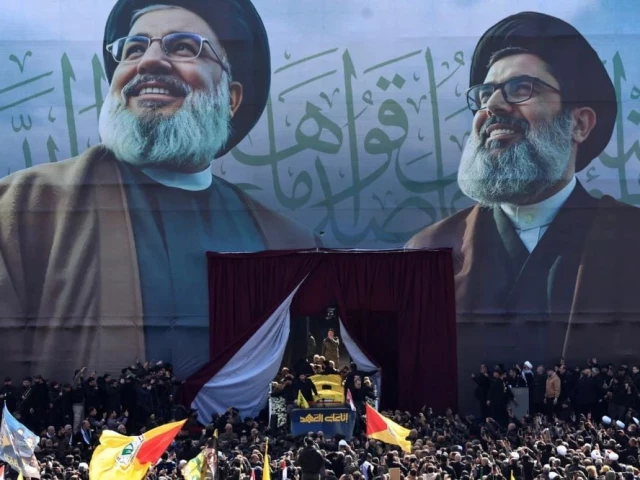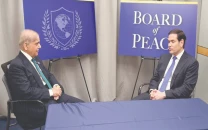Thousands gather in Beirut for slain Hezbollah leader Hassan Nasrallah’s funeral
Funeral for Nasrallah drew 800 dignitaries from 65 countries, with thousands more watching on giant screens

Tens of thousands of mourners gathered in Beirut on Sunday to pay their final respects to Hezbollah’s late leader Hassan Nasrallah, who was assassinated by Israel five months ago. The public funeral, initially delayed due to security concerns, was held at the Camille Chamoun Sports City Stadium, Lebanon’s largest venue.
The event began with a speech by Iran’s Supreme Leader Ayatollah Ali Khamenei, read aloud to the crowd. Mourners stood in silence as the decorated coffins of Nasrallah and his heir apparent, Hashem Safieddine—who was killed in another Israeli airstrike a week later—were brought into the stadium, draped in Hezbollah’s yellow flag.
Hezbollah leaders framed the funeral as both a tribute and a demonstration of resilience. “We will uphold trust and walk on this path,” said Hezbollah’s acting leader, Naim Qassem, in a televised speech. “Your struggle lives within us.”
Hezbollah official Ali Daamoush said 800 dignitaries from 65 countries attended the ceremony, which featured large portraits of Nasrallah displayed across south Beirut. Organizers also set up additional seating and broadcast the event on a giant screen outside the stadium for thousands more attendees.
Observers described the funeral as a major political event. Al Jazeera’s Ali Hashem called it a “show of force,” demonstrating Hezbollah’s continued ability to mobilize supporters despite military and political setbacks.
“Hezbollah is sending a message: our strength isn’t just in weapons, but in people,” Hashem said. “This is a regional statement, not just a local one.”
Lebanese state media reported that Israeli fighter jets flew at low altitude over Beirut and its suburbs during the funeral. This came just hours after Israeli airstrikes targeted sites in southern Lebanon, which the Israeli military claimed housed rocket launchers threatening its civilians.
A fragile ceasefire has been in place since November, following months of cross-border clashes between Hezbollah and Israel. While Israel withdrew from several towns in southern Lebanon last week, it still maintains military positions along the border, fueling tensions in the region.
As Nasrallah is laid to rest near Beirut’s airport road, the funeral underscores Hezbollah’s enduring influence in Lebanon—and the broader geopolitical struggle that continues to shape the Middle East.























COMMENTS
Comments are moderated and generally will be posted if they are on-topic and not abusive.
For more information, please see our Comments FAQ